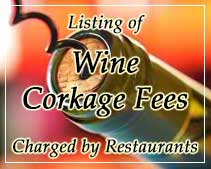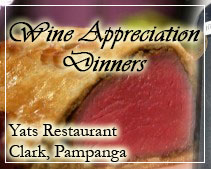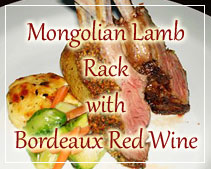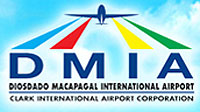Frequently asked questions (FAQ) about Cognac
Where is Cognac on Line, home of http://le-cognac.com located?
Cognac on Line has been operating since 1996. Our Family, the MARTELL’s, has been involved in the Cognac Business since 1715. Our purpose is to help Cognac Lovers to discover that Cognac is much more than a couple of brands and qualities. We are based in Bordeaux which is 75 miles from Cognac.
What do the initials V.S.O.P stand for?
A V.S (for: Very Special), also called *** (or: Three Stars) is at least two and a half years old its youngest eau-de-vie is under four and a half years old;
A V.S.O.P (for: Very Superior Old Pale), also called Reserve, between four and a half and six and a half;
A Napoleon, or X.O ( for Extra Old ), also called Hors d’├óge, at least six and a half years old.
Most Houses of Cognac will use Cognacs much older than required by law, allowing X.O’s to reach a minimum of twenty years of age, in order to reveal their very best.
Learn more…
‘ballon’ glass or ‘tulip’ glass: What is the ideal shape for a Cognac glass?
Some of the world’s most prestigious restaurants serve their best Cognacs in a gigantic ‘ballon’ glass. The aroma of the Cognac rises straight to the nose, thus aggressing the smell.
True connoisseurs choose a smaller glass in a tulip shape, Containing 13cl, it should only be filled with 2.5cl. In such a glass the aroma is concentrated before revealing itself steadily, allowing time to discover its subtle fragrance, observe its delicate color and mellow before even sipping it.
Their preference was confirmed recently when 50 of the worldŌĆÖs best sommeliers and tasters came together in Cognac for the second International Cognac Summit (25 to 28 January 2009).
In a tasting of the same Cognac served in 10 different glasses, the tulip glass was a clear favourite. The reason? Its full bowl and narrow neck concentrate the spiritŌĆÖs complex aromas and then release them subtly and progressively.
So, if, like the pros, you too want to find aromas of violet, apricot, almond, honey, cinnamon, leather and sandalwood in your glass of Cognac, you might want to try the tulip.
What are the connoisseurs tips to enjoy Cognac?
The experience of a fine Cognac should be one satisfying all senses, sight, olfaction and naturally, taste.
First, the sight: rise the transparent glass to eye level and observe the inimitable amber color and the mellow of the Cognac.
Next, the smell: gently bring the nose over the top of the glass and discover the initial volatile aroma; circulate the glass in your hand: some call it the ‘humanization’ of Cognac, and discover, with the ‘second nose’, the full bouquet.
Finally, the taste. It should confirm the impressions experienced before. The tongue is split into distinct parts allowing to experience successively sweetness, saltiness, bitterness, acidity, all inherent to the flavor of Cognac. A good Cognac will leave an impression for a long time.
The glass should be filled to its fifth, in order to leave room to the aroma. It is recommended to warm slightly the glass in the palms of the hand , but never over a flame: this might destroy the delicate aroma of a Cognac.
Learn more about tasting…
How should I store my Cognac and for how long?
You should always store your Cognac up. The Cognac should not be in contact with the cork. Once opened, the air may deteriorate the quality of the Cognac. Therefore, you should drink an opened bottle within several weeks, or transfer it in a smaller decanter. Remember to put the cork back immediately after pouring. Unopened, you could keep your Cognac for ages.
What is the relationship between ‘Champagne’ and ‘Fine Champagne’?
The Websters Dictionary describes ‘Champagne’ as a ‘White sparkling wine made in Champagne, France’. Epernay, near Reims, is considered the capital of Champagne. Why then do we talk of ‘fine champagne’ for Cognac? The word ‘champagne’ comes from Latin ‘campus’, or open field.
Only the Cognacs exclusively made from a blend of Grand and Petite Champagne, and containing a minimum of 50% of Grande Champagne, may bear the name: Fine Champagne.
Learn more about the groth areas…
Is there a special vocabulary for Cognac?
Tasting notes of professionals will include words describing aromas of flowers, fresh fruits, dry fruits- -like nuts, spices- -pepper and cinnamon are favorites, or even coffee and cigar box! Near Cognac, in Segonzac, capital of Grande Champagne, the International University of Eaux-de-vies will teach you all the secrets of the tasting techniques. You may also try it on-line. For true amateurs only!
Learn more about tasting and the vocabulary…
Are there vintages for the Cognac?
A Cognac stops its maturation as soon as transferred in a glass container. The quality and age of a Cognac depend primarily upon its length of stay in a wooden recipient; therefore the millesime (literally: year of birth) is far less important than for wine.
Vintage Cognac is unique since very limited quantities are available. Only a few distillers are wise enough to put aside the good years part of their production to be certified as a specific vintage. Since the 50ŌĆÖs Certification is granted by the Bureau du Cognac or alternatively by sworn brokers. The Eaux de vie must be sealed or stored in a cellar opening with two keys : one key for the House and one key to a legal representative of the BNIC or French Customs.
Limited quantities of Old VIntages can still be found. These cognacs are kept in glass jars to guarantee a perfect protection. Younger Vintages are often available from the best vintage years. See our vintages…
What is the difference between Cognac or Brandy?
Brandy is named after the Dutch term ‘brandjiwin’: It defines a wine spirit distilled from wine or fermented juice and aged for at least six months in oak casks.
Technically, therefore, all Cognacs are brandies. But while the Brandy may be made anywhere in the world, Cognac can only be produced in the Cognac region. A decree amended in 1909 delimits the boundaries of the Cognac production area; later decrees define the rules to follow in order to deserve the controlled appellation: Those rules cover topics including the two stage distillation, the maturing in oak casks in warehouses called “jaune d’or” (or: golden yellow), reserved specifically for Cognac, the minimum period of aging of approximately 30 months.
The Bureau National Interprofessionel du Cognac (BNIC) is responsible for ensuring that all Cognac sold follow these rules.
Is there such a thing as a “road of Cognac”?
Your own unofficial road of Cognac will lead you to discover roman art in the middle of a vineyard, stroll in the old town of Cognac where King Fran├¦ois the First was born, ride a boat on the river, visit the Cognac Museum covering the archeological and artistic history of the region, witness the making of a barrel, a craftsmanship perpetrated over generations.
The largest houses of Cognac welcome visitors all year long, and most producers will gladly open their doors for you.
For more information: contact the Tourism Office of Cognac.
Les ├ētapes du Cognac network consists of winegrowers and visitor service providers who want to enhance the winegrowing area and its products. They include distillers, winegrowers, hoteliers, restaurateurs, tour companies, museums etc.
Each professional signs a charter that varies depending on the type of business (vineyard charter, hotel charter, restaurant charter and sightseeing charter) but that, in every case, defines the hospitality and welcome that he or she is committed to providing.
Each location is inspected before being accredited to ensure compliance with all the clauses of the charter.
What is the best season to visit the Cognac region?
There are many good seasons to visit the Cognac region, beginning with October, the month of the harvest, or November if you are interested in witnessing the distillation process.
Early November, during the European Book fair, writers from all over Europe gather in Cognac for conferences and mingle with the public.
In April, for the Thriller Film festival, artists and producers land in Cognac to present their latest movies.
July celebrates the summer with a street fair: ‘Coup de Chauffe’ and a classical music festival: ‘Val de Charente’; during August’s ‘Blues Passion’ amateur and professional musicians share their art in jazz sessions.
Source: http://le-cognac.com/tout-savoir-sur-le-cognac/f-a-q.html
Some hotels and resorts offer free WIFI Internet connection to guests. This includes beach resort of Clearwater which also offers free Internet connection in the room as well as in the outdoor areas even near the beach and by the lake.
Fine dining restaurants like Yats Restaurants and Wine Bar also offers good internet connection to their guests. Highly recommended bar, pub and nightlife spot The London Pub located inside Mimosa also offers good internet connection to guests.
The London Pub is a classic English Gastropub frequented by local expats and business community. It serves up good food, plenty of excellent vintage wine by the glass and a good selection of Cuban cigars. The ambience is old English, dark wood, comfortable and relaxed.
Frequent travelers and visitors staying in Angeles City Pampanga Clark Philippines look for restaurants, coffee shops, bars, pubs, hotels and resorts in Clark that serve high quality Nespresso coffee to guests. Here are some of the highly recommended places in Clark that offer good gourmet Nespresso coffee.
This web site contains articles and information that will be helpful to visitors, residents and tourists traveling out of town from Manila on a short getaway to Subic, Angeles City, Pampanga and Clark Philippines. There are several web sites that contain information that might also be pertinent to what is happening in North Luzon.
For assistance with organizing and planning weddings and garden receptions, log on to http://www.PhilippinesWeddingVenue.com
For assistance with lodgings, accommodations, hotels and resorts near Manila in Subic, Pampanga, Angels City and Clark Philippines log on to http://www.HotelClarkPhilippines.com
While in Clark, one might as well add to the itinerary a visit to the famous Clark Wine Center, the largest wine shop in Philippines which offers over 2000 selections of fine vintage wine from all wine regions, vintages spanning over 50 years covering all price ranges.
http://www.ClarkWineCenter.com
If this article about Clark is useful to you, please click here to contact us to tell us what more you wish to know about this article or Clark Philippines, which can be something about Clark investment, about Clark resorts, about Clark Swimming and Leisure or simply general news about Clark.
Please send questions to Editor@ClarkPhilippines.com. Leave your name, email address, contact numbers and we will get back to you as soon as possible. Information received will not be disclosed.













